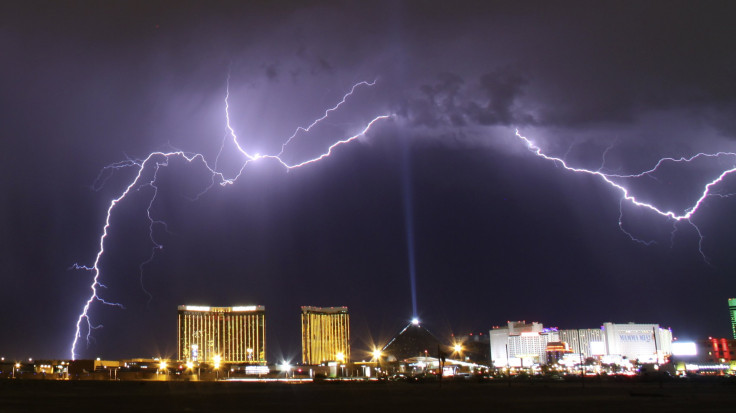Ignorance Is Bliss With Weather Phobias: The More Educated You Are, The Greater Your Fear

Natural disasters are just about the scariest thing imaginable, and for everyone besides Bill Paxton in Twister, when a storm starts a-brewin', most people head indoors fast. A recent study uncovered that for one in every 10 Americans, this fear of weather is so great that it impedes their ability to function normally. A mother-daughter research team delved deep into the human psyche to uncover the roots of man’s fear of weather, and it seems the more you know, the more fearful you’ll be.
Jill Coleman, a geographer at Ball State University, and her mother Karen Multon, a psychologist at the University of Kansas, know firsthand how crippling a weather phobia can be. Coleman’s father suffers from an intense weather fear, USA Today reported, and prompted her to explore how prevalent this specific phobia was in the United States. The team interviewed nearly 300 adults in the U.S. and asked about their past dealings with severe weather, where they lived, and how they felt when confronted with severe weather, Medical Xpress reported.
As expected, it seemed that where people lived was intrinsically linked to their weather fears. For example, those living on the East Coast and in the South were fearful of hurricanes, while those in the West were more concerned with wild fires. Midwesterners, on the other hand, pointed to heavy snow and tornadoes as the source of their weather fears.
The degree of these weather fears varied greatly. Around a third of respondents reported that they frequently watched the weather channel, checked the Internet, or listened to the radio when they suspected severe weather. Others said their fear went so far as to cause troubles with their sleep, give them anxiety, and cause them to panic.
If you have a fear of weather, you’re surely not alone. About 85 percent of respondents reported having at least some degree of severe weather fear. However, about 10 percent of the respondents classified their fear as being “extreme” or “quite a bit.” The study also found that factors other than the area where respondents lived were related to their level of fear.
Those who had the highest level of education, especially in weather-related subjects, were related to increased levels of weather anxiety. “One thing we can surmise is that if people gather more information, they have a greater understanding of weather events and can be driven to anxiety," Coleman said. "We definitely intend to look into this more." There is also the possibility that those who are more prone to severe weather phobia are also more likely to seek out weather-related courses.
The researchers plan to expand on these findings and how they relate to the way humans interpret weather patterns.
Source: Coleman JSM, Newby KD, Multon KD, Taylor CL. Weathering the Storm: Revisiting Severe-Weather Phobia. American Meteorological Society. 2014.



























